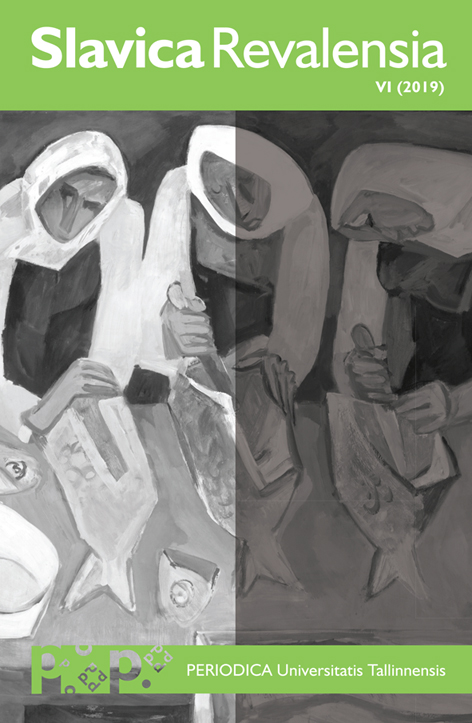Набоков и советская литература («Приглашение на казнь»)
Nabokov And The Soviet Literature: Invitation To A Beheading
Author(s): Alexander DolininSubject(s): Russian Literature
Published by: Tallinna Ülikooli Kirjastus
Keywords: 20th-Century Russian Literature; Vladimir Nabokov (1899–1977); Yuri Tynianov (1894–1943); Prihlashenie na kazn’ (1935–36); Kiukhlia (1925); Emulation; History of Literature;
Summary/Abstract: This article explores a multifaceted dialogue with the Soviet Literature in Vladimir Nabokov’s writings of the 1920s and 1930s, especially in the Russian original of Invitation to a Beheading (1935–36). As the draft of the novel shows, Nabokov initially thought of alluding to the nascent cult of heroic aviators in Stalin’s USSR and to the odious collective work of Soviet writers, headed by Maxim Gorky, glorifying the use of forced prison labor during the construction of Belomorkanal. Though Nabokov eventually rejected the idea, he continued his polemic against the Soviet literature by taking issue with Yuri Tynianov’s historical novel Kiukhlia (1925) about Wilhelm Küchelbecker. While Tynianov portrayed the latter’s imprisonment and exile as a spiritual death, Nabokov allowed his imprisoned protagonist to develop his creative imagination and poetic vision when awaiting his execution in solitary confinement. The article argues that the historic Küchelbeker resembled Nabokov’s “poet in prison” more closely than Tynianov’s one-sided representation.
Journal: Slavica Revalensia
- Issue Year: 2019
- Issue No: 6
- Page Range: 9-43
- Page Count: 36
- Language: Russian

